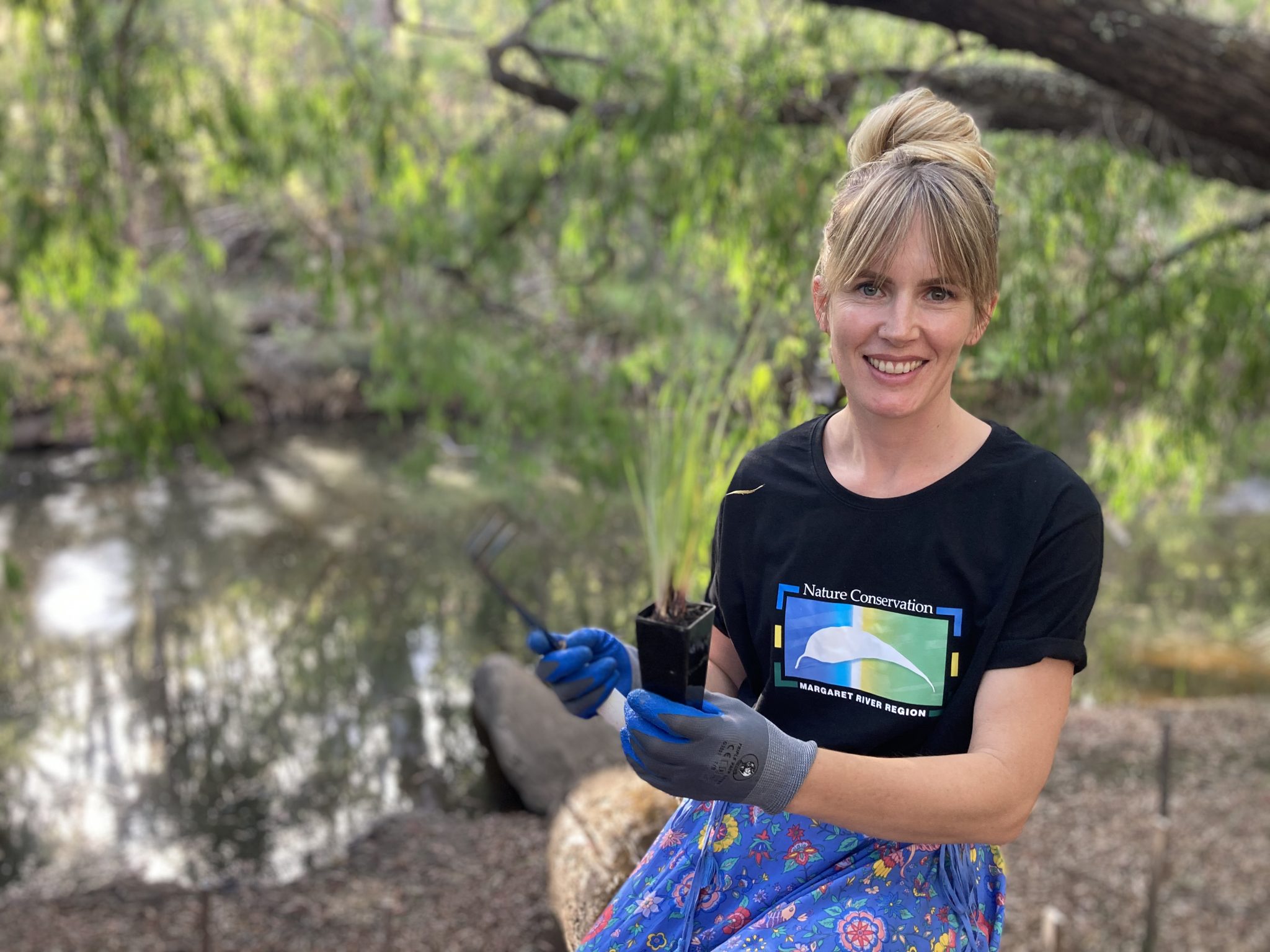Nature Conservation Margaret River Region’s hugely successful landholder program has come to an end after inspiring hundreds of locals to give nature a helping hand on their properties.
Over the past three years, more than 700 people across the region joined the conservation group’s For Nature Landholder Stewardship Program, which mobilised people to boost habitat and biodiversity in suburban backyards, bush blocks and larger rural properties.
The free program helped inspire and educate people with practical ways to boost the conservation values of their garden, property and surrounding bushland – from knowing which species to plant to how to control weeds, attract native animals and improve biodiversity.
It included:
- 14 expert workshops, garden tours or field trips on a diverse range of topics to connect people and share knowledge and resources
- Three hugely popular, annual Open Nature Gardens Weekends with more than a thousand people attending in total
- a free equipment loan service to make conservation action easier
- handing out 79 conservation grants totalling $100,000 on a 50-50 cost-share basis to 53 landholders to carry out important conservation work at their place
- 24 biodiversity plans carried out on private properties to better understand, conserve and improve biodiversity
- 2 native community gardens installed to serve as inspiration and a knowledge sharing space for landholders wanting to design a native garden
- 745 native plant vouchers given out to the community, which translates to almost 6000 native plants being planted in urban and rural gardens across the region
- Almost 950 hectares of landholder environmental stewardship undertaken in the Margaret River region
- sharing a wealth of online resources and featuring inspiring case studies of local champions
Nature Conservation general manager Drew McKenzie said generous funding from the WA Government’s State Natural Resources Management Program, Water Corporation and Shire of Augusta Margaret River made the program possible. He said For Nature was always scheduled to be a three-year program but said that Nature Conservation “will continue to run a whole swag of events, community volunteer days and educational workshops through our many other environmental programs, while the vast wealth of resources, factsheets, videos and how-to guides for people to access are still available online at www.natureconservation.org.au.”
For Nature coordinator Peta Lierich (pictured) worked tirelessly to make the program one of the most successful landholder initiatives in the state. She said it had been hard work but great fun and hugely rewarding, turning landholders into custodians with incredible environmental outcomes for the region.
Ms Lierich said 70 per cent of land in the Margaret River region is privately-owned, so landholders play a vital role in protecting and enhancing our local nature and biodiversity. The southwest of Australia is one of about 40 biodiversity hotspots in the world – a classification reserved for threatened places that have at least 1500 endemic plants but have lost 70 per cent of original vegetation. But Ms Lierich stressed there were many ways people could lessen their impact, starting in their own backyard.
“We live in an altered landscape with a growing population, but there are lots of little things we can do to conserve what we have,” she said. “If there’s one thing we learned with this program, it’s that the most powerful change doesn’t come from one person trying to do everything but when everybody does their little bit to protect this very special part of the world.”

